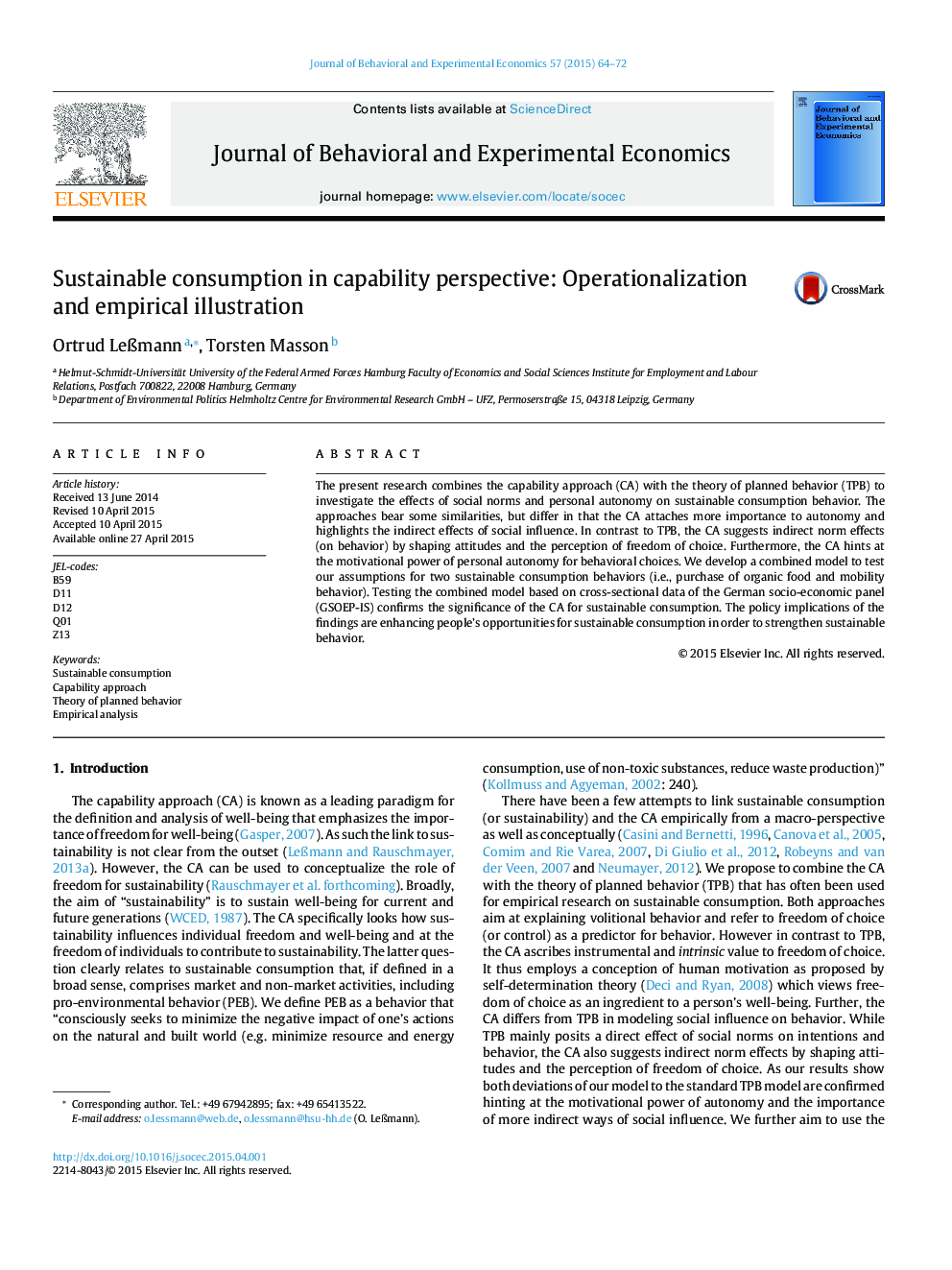| Article ID | Journal | Published Year | Pages | File Type |
|---|---|---|---|---|
| 881834 | Journal of Behavioral and Experimental Economics | 2015 | 9 Pages |
•We examine the opportunities of individuals to contribute to sustainability.•We combine the capability approach with the theory of planned behavior.•The indirect effect of social norms on intention and behavior comes to the fore.•Autonomy moderates people's ability to act according to their attitudes.
The present research combines the capability approach (CA) with the theory of planned behavior (TPB) to investigate the effects of social norms and personal autonomy on sustainable consumption behavior. The approaches bear some similarities, but differ in that the CA attaches more importance to autonomy and highlights the indirect effects of social influence. In contrast to TPB, the CA suggests indirect norm effects (on behavior) by shaping attitudes and the perception of freedom of choice. Furthermore, the CA hints at the motivational power of personal autonomy for behavioral choices. We develop a combined model to test our assumptions for two sustainable consumption behaviors (i.e., purchase of organic food and mobility behavior). Testing the combined model based on cross-sectional data of the German socio-economic panel (GSOEP-IS) confirms the significance of the CA for sustainable consumption. The policy implications of the findings are enhancing people's opportunities for sustainable consumption in order to strengthen sustainable behavior.
